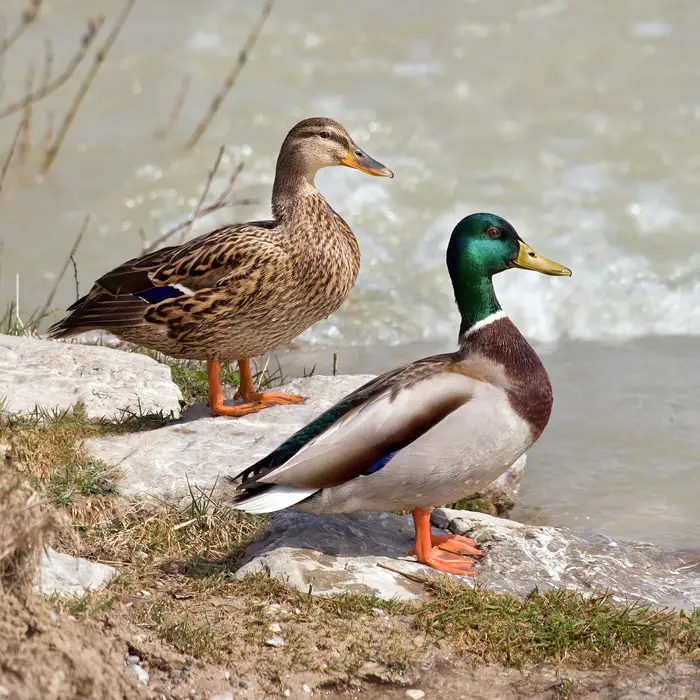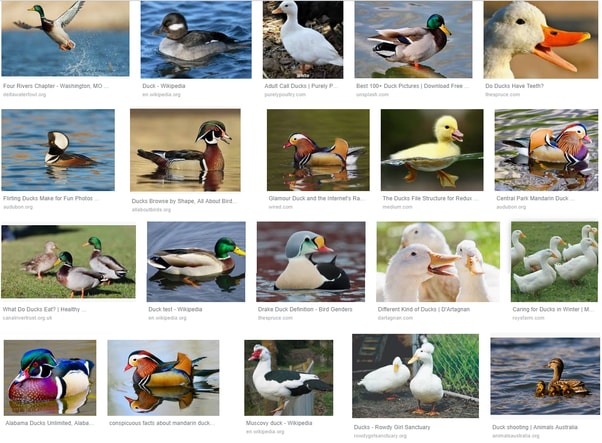Duck rearing is a widespread agricultural practice for various reasons, including economic, environmental, and social benefits. These factors make duck rearing an attractive and sustainable farming practice with diverse benefits for farmers, consumers, and the environment.
10 Most Important Benefits of Ducks
Here are the ten most essential benefits of ducks:
- Economic Viability: Ducks provide a significant source of income by selling their meat, eggs, and feathers. Their products have a high market demand, ensuring steady revenue for farmers.
- Nutritional Value: Duck meat and eggs are rich in high-quality protein, vitamins, and minerals, making them a nutritious addition to human diets. They are exceptionally high in vitamin B12, iron, and omega-3 fatty acids.
- Pest Control: Ducks effectively control pests, such as insects, snails, and weeds, in agricultural fields, reducing the need for artificial pesticides and promoting organic farming.
- Low Maintenance: Ducks are hardy animals with relatively low maintenance requirements. They are resistant to many common poultry diseases, making them easier to manage than chickens.
- Sustainable Farming: Ducks can be integrated into sustainable farming systems, such as rice-duck farming, which improves soil fertility and reduces the need for artificial fertilizers through natural fertilization.
- Environmental Adaptability: Ducks can thrive in various ecological conditions, from tropical to temperate climates. Their adaptability makes them a versatile choice for farmers in different regions.
- High Reproductive Rate: Ducks have a high reproductive rate, with some species laying a significant number of eggs yearly. This ensures a continuous supply of young ducks for meat production.
- Efficient Waste Utilization: Ducks can convert agricultural waste and by-products into valuable protein sources, such as kitchen scraps and leftover grains. This reduces waste and improves farm efficiency.
- Wetland Conservation: Duck rearing can support wetland conservation efforts by maintaining and utilizing wetland areas, critical habitats for various wildlife species.
- Employment Opportunities: Duck farming enhances employment facilities in rural areas, contributing to village economies and reducing poverty. It supports traditional farming practices and cultural heritage in many regions.
Valuable Tips for Duck Rearing in Homesteads
The benefits of duck raising at a homestead can be a rewarding and productive endeavor. Here are some valuable tips for successful duck rearing:
1. Choosing the Right Breed: Select breeds suitable for your purposes, whether for eggs, meat, or both. Popular egg-laying breeds include Khaki Campbell and Indian Runner, while Pekin and Muscovy ducks are known for meat production.
2. Housing and Shelter: Provide a secure and well-ventilated shelter to protect ducks from predators and harsh weather. Ensure the shelter is easy to clean and has dry bedding like straw or wood shavings. Ducks need access to a safe outdoor area for foraging and exercise. Enclose the area with a fence to keep predators out.
3. Water Supply: Ducks need availability to clean water for drinking and swimming. While a small pond or kiddie pool is ideal for swimming, ensure it’s shallow enough for them to get in and out quickly.
- Change the drinking water regularly to keep it clean and fresh. Use shallow dishes to prevent young ducklings from drowning.
4. Feeding: Provide a balanced diet with commercial duck feed formulated to meet their nutritional needs. Supplement their diet with kitchen scraps, grains, and greens.
- Ducks are natural foragers. They can roam and graze on grass, insects, and small plants, which supplements their diet and keeps them active and healthy.
5. Health and Hygiene: Maintain good hygiene by regularly cleaning the duck house and water containers. Remove wet bedding materials and replace them with dry materials to prevent respiratory issues and infections.
- Look for common health issues like parasites, respiratory infections, and leg problems. Regularly check ducks for signs of illness and consult a veterinarian if necessary.
6. Breeding and Egg Collection: If you plan to breed ducks, provide nesting boxes filled with straw for the ducks to lay eggs. Collect eggs daily to ensure they stay clean and fresh. Monitor the breeding ducks and ensure they have a balanced diet to support egg production and healthy offspring.
7. Socialization and Handling: Ducks are social animals and thrive in groups. Keep at least two or more ducks together to prevent loneliness and stress. Handle ducks gently and regularly to get them used to human interaction. This will make it easier to manage them and reduce stress during health checks or moving.
8. Protection from Predators: Secure the duck house and outdoor area with predator-proof fencing. Use hardware cloth or similar materials to prevent small predators from getting in. Lock ducks in their shelters at night to protect them from nocturnal predators such as raccoons, foxes, and owls.
9. Seasonal Care: In cold climates, provide additional bedding and ensure the shelter is draft-free to keep ducks warm during winter. Use heated waterers to prevent water from freezing. In hot climates, provide shade and ensure ducks can access cool water to prevent heat stress. Offer additional ventilation in the shelter to keep it cool.
10. Record Keeping: Detailed records of your ducks’ health, egg production, and breeding activities. This will help you manage their care and make informed decisions about feeding, health treatments, and breeding programs.
Final Talk on the Benefits of Duck
When done thoughtfully, duck rearing can be a sustainable and profitable addition to your homestead. You can ensure their health and productivity by selecting suitable breeds, providing proper care, maintaining good hygiene, and protecting your ducks from predators. Ducks offer valuable products and contribute to pest control and environmental sustainability, making them a versatile and beneficial addition to any farming setup. Duck rearing can be a fulfilling and lucrative endeavor with careful planning and attention to detail.

